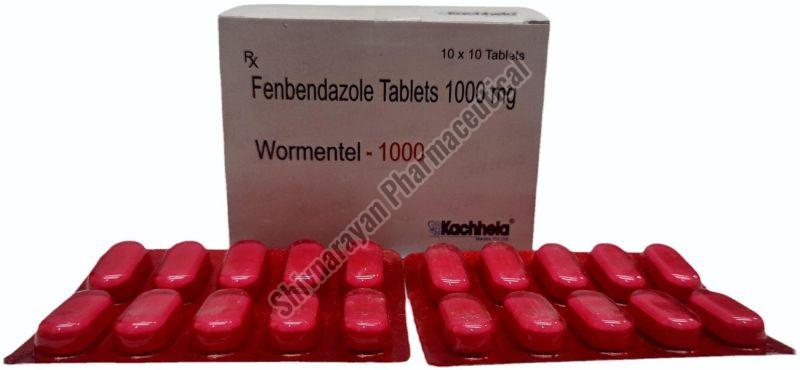How fenbendazole 222 Works for Treating Infections
Wiki Article
Recognizing the Advantages and Uses of Fenbendazole in Veterinary Medicine
Fenbendazole has developed itself as a key anthelmintic in vet medication. Its capability to target numerous parasitical infections makes it a useful device for vets. The drug's system interferes with necessary mobile processes in parasites, resulting in reliable therapy outcomes. However, its safety account differs in between types, demanding mindful consideration in its usage. Understanding these characteristics can clarify fenbendazole's broader implications in vet treatment and continuous research study right into its possible beyond typical applicationsSystem of Action of Fenbendazole

Usual Parasitical Infections Treated With Fenbendazole
A variety of parasitical infections are effectively treated with fenbendazole, making it a versatile choice in veterinary medication. This anthelmintic representative is specifically reliable versus nematodes, consisting of roundworms and hookworms, which commonly impact pet dogs and felines. It is likewise utilized for the therapy of cestodes, such as tapeworms, providing a broad range of activity versus both types of digestive parasites. Additionally, fenbendazole is valuable in managing infections brought on by protozoa, especially Giardia, which can lead to intestinal distress in pets. Its efficiency encompasses dealing with specific lungworms in pooches and felines, addressing respiratory wellness worries linked to these bloodsuckers. On the whole, fenbendazole's ability to target numerous parasitical species makes it an important device in vet method, making certain the health and health of family pets impacted by these typical infections.Security and Efficiency in Various Pet Types
The safety and effectiveness of fenbendazole vary among various pet species, emphasizing the value of species-specific considerations in vet medicine. In dogs, fenbendazole is usually well-tolerated and reliable against an array of intestinal bloodsuckers, consisting of roundworms and hookworms. For felines, nonetheless, its usage is much less common and might call for careful application as a result of possible damaging reactions.In livestock, such as cattle and sheep, fenbendazole demonstrates effectiveness versus different endoparasites, adding to improved health and productivity. However, the pharmacokinetics and potential adverse effects can differ noticeably in between types, requiring mindful examination by vets.
Horses likewise respond positively to fenbendazole, especially for dealing with strongyles and ascarids, though dosage and management paths have to be customized to their unique physiology. Comprehending these distinctions is crucial for maximizing therapy outcomes and ensuring animal well-being across varied species.
Administration and Dosage Standards
Appropriate administration and dose guidelines are vital for taking full advantage of the restorative effects of fenbendazole while decreasing possible side impacts. The dosage normally varies depending on the types being dealt with, the details problem, and the formula of fenbendazole made use of. fenbendazole. For pets and pet cats, a common dosage is 50 find out this here mg/kg body weight, provided daily for three successive days, but vets might readjust this based upon private health evaluationsIt is essential to administer fenbendazole with food to boost absorption and minimize stomach upset. The medicine is available in different kinds, consisting of granules and paste, permitting for adaptable management choices. Checking the pet's reaction during and after therapy is recommended to confirm efficacy and security. In addition, vet support is crucial to determine the proper period of treatment based upon the kind of parasitic infection being dealt with, assuring optimal results for the animal's wellness.
Future Perspectives and Study on Fenbendazole
Research study on fenbendazole continues to evolve, focusing on its potential applications past typical antiparasitic uses. Current studies have actually discovered its effectiveness in dealing with different kinds of cancer cells, especially in vet oncology. Preliminary data suggest that fenbendazole might prevent the development of growth cells and enhance the results of various other chemotherapeutic representatives.In addition, researchers are examining its function in managing stomach disorders in pets, highlighting its anti-inflammatory residential properties. The adaptability of fenbendazole for various types increases inquiries about its security profiles and perfect application routines in diverse populations.
As passion expands, there is a demand for complete clinical trials to establish evidence-based standards for these novel applications. Future research study might likewise examine the devices behind fenbendazole's effects, possibly leading the way Web Site for ingenious therapeutic strategies in vet medication. The ongoing exploration of fenbendazole could considerably enhance therapy options for different vet problems.

Often Asked Questions
Is Fenbendazole Safe for Pregnant Animals?
The safety and security of fenbendazole for pregnant animals remains uncertain. While some research studies recommend minimal risk, vets normally suggest care and usually advise against its use while pregnant unless the advantages plainly surpass potential risks.Can Fenbendazole Be Used in Animals?
Fenbendazole is generally made use of in animals to deal with read this article different parasitic infections. fenbendazole 222. Its effectiveness versus gastrointestinal worms makes it a beneficial anthelmintic, adding to boosted health and efficiency in pets increased for food and fiberWhat Are the Side Impacts of Fenbendazole?

The side effects of fenbendazole might include stomach disturbances, lethargy, and allergies. In unusual cases, much more extreme reactions could occur, necessitating cautious monitoring and examination with a veterinarian during therapy.
Exactly How Does Fenbendazole Compare to Various Other Dewormers?
Fenbendazole uses broad-spectrum efficacy versus numerous parasites, usually contrasting positively to various other dewormers. Its special system targets various life phases, making it effective, while typically providing a desirable security profile compared to alternatives offered on the marketplace.Can Fenbendazole Be Made Use Of for Dealing With Cancer Cells in Pet Dogs?
The potential of fenbendazole in treating cancer in family pets has gathered passion. Preliminary research studies recommend it may hinder cancer cells cell growth, however better study is required to verify its efficiency and safety and security in vet oncology.Report this wiki page